Recognizing that this overcomes many shortcomings in developing the teaching staff, experts also offer solutions to avoid the risk of "autonomy but lack of control".
Overcoming shortcomings
Mr. Pham Kim Thu - Principal of Friendship College (Nghe An) commented: The fact that heads of public universities and vocational training institutions are autonomous in recruiting teachers brings the first benefit of reducing administrative procedures and shortening the recruitment process.
This regulation also increases flexibility, adapts to the characteristics of each facility; attracts high-quality human resources and links responsibility with authority. Specifically, each school has its own development orientation, if it is autonomous in recruitment, it will be easier to choose people who are suitable for the training philosophy and development goals. When given autonomy, schools can be proactive in the time, method, and selection criteria - creating a competitive advantage in the human resources market of the education sector.
Mr. Nguyen The Luc - Vice Principal of the College of Pharmacy (Hanoi) said: Delegating the authority to recruit teachers to the education sector, especially to the heads of higher education and vocational institutions can overcome some current shortcomings. Accordingly, the shortage of human resources at educational and training institutions will be promptly resolved, and the heads of educational and training institutions will be more proactive in human resources from the requirements of quantity and quality structure, especially in areas with difficult socio -economic conditions in remote and isolated areas.
In addition, increasing the role of the head of the educational institution in managing the training institution also ensures initiative, responsibility and response to the practical requirements of the recruitment positions that the educational institution desires, overcoming the situation of local surplus - shortage and imbalance in the structure of teachers.
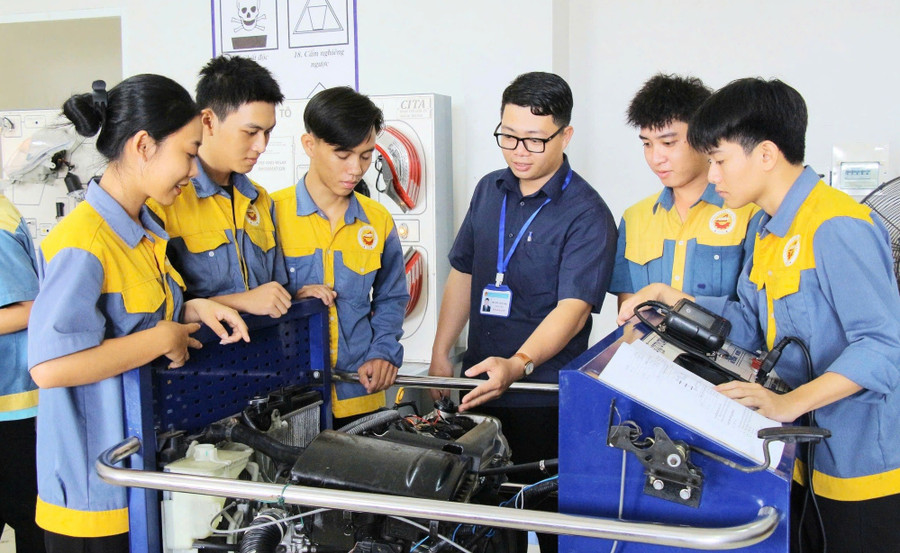
Strong institutions to ensure fairness
Agreeing with the new policy, however, Mr. Tran Thanh Nam - Vice Principal of the University of Education ( Hanoi National University) noted: The more autonomy in recruitment is decentralized, the higher the requirement for transparency in the recruitment process.
To ensure that, educational institutions need to build a unified and public recruitment process; from recruitment announcements, application documents, council members and the process of announcing results on the electronic information portal, as well as the official social networking sites of the unit, reporting to the parent unit for monitoring. In particular, with the recruitment criteria, the quality and capacity factors must be specifically quantified; for example, the number of scientific articles, the number of project topics, research group leadership, teaching capacity, etc.
Mr. Tran Thanh Nam also said that it is necessary to establish a multi-component and appropriate Recruitment Council, including representatives of lecturers, unions and famous experts in the field of off-campus work to assess the actual quality of expertise, increase objectivity, and strengthen internal criticism.
It is necessary to develop and implement an internal monitoring mechanism (for example, through the People's Inspectorate) to check recruitment rounds; establish a mechanism to publicize the list of successful candidates and receive complaints and feedback to resolve them impartially.
The policy of granting autonomy in recruiting teachers is a positive step forward, helping the education system operate in a more modern, flexible and effective direction. However, Mr. Pham Kim Thu noted: Rights must go hand in hand with responsibilities and can only truly be effective when there are strong enough institutional designs to ensure transparency, fairness and prevent negativity. Building a set of recruitment standards, applying information technology in publicizing, and strengthening the role of social supervision are indispensable factors in the coming period.
First, the control and supervision mechanism: Issue unified recruitment regulations applicable to all establishments, requiring public disclosure of recruitment criteria, processes, and results. Establish a periodic inspection system by management agencies such as the Ministry of Education and Training, or provincial people's committees (for public schools). Have a mechanism to receive and handle complaints and denunciations about recruitment violations.
Second, information transparency mechanism: Schools are required to publicly announce recruitment plans, candidate lists, and recruitment results on the electronic information portal. There is a recruitment council consisting of representatives from many parties (specialized departments, unions, independent experts, etc.) to avoid "recruiting acquaintances".
Third, post-audit evaluation mechanism: Link recruitment results to teaching effectiveness and professional development of the recruited person. In case of detecting violations of the process, sanctions can be applied such as: Forced re-recruitment, not recognizing results, or handling the responsibility of the head.
To ensure transparency and avoid abuse of power, according to Mr. Nguyen The Luc, there needs to be a strict monitoring mechanism, a clear recruitment process, and the participation of relevant parties in the recruitment process. "I believe that if this work is done well, the effectiveness will be improved and more profound, that is, the quality of education and training, the position of education and training institutions will be increasingly enhanced, and the beneficiaries of that achievement will be learners and society," Mr. Luc commented.
Giving autonomy in teacher recruitment will remove bottlenecks in staff allocation and delays due to waiting for approval from competent authorities. At the same time, it will create conditions for educational institutions to proactively plan and recruit people according to the industry development strategy; thereby increasing competitiveness and attracting domestic and foreign talents. The new policy is also consistent with the shift in thinking from "administrative staff management" to "human resource management". - Mr. Tran Thanh Nam - Vice Principal of the University of Education
Source: https://giaoducthoidai.vn/co-so-gd-dai-hoc-nghe-nghiep-tu-chu-tuyen-dung-nha-giao-kiem-soat-nhu-the-nao-post741614.html






![[Photo] Da Nang: Water gradually recedes, local authorities take advantage of the cleanup](https://vphoto.vietnam.vn/thumb/1200x675/vietnam/resource/IMAGE/2025/10/31/1761897188943_ndo_tr_2-jpg.webp)
![[Photo] Prime Minister Pham Minh Chinh attends the 5th National Press Awards Ceremony on preventing and combating corruption, waste and negativity](https://vphoto.vietnam.vn/thumb/1200x675/vietnam/resource/IMAGE/2025/10/31/1761881588160_dsc-8359-jpg.webp)




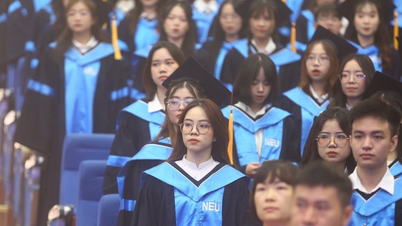
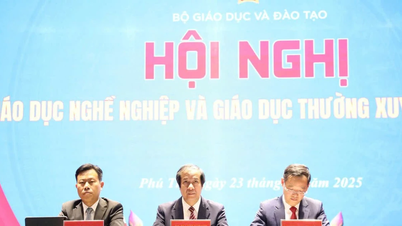

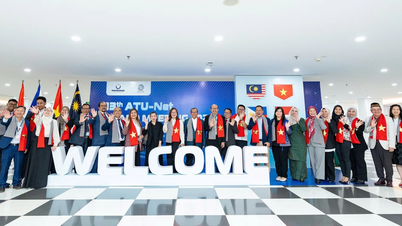


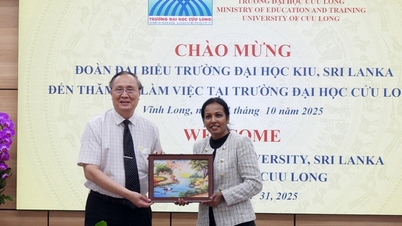



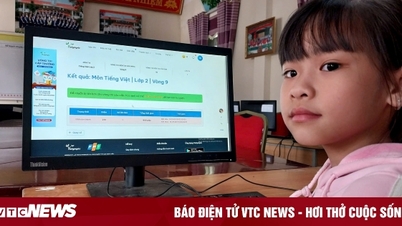







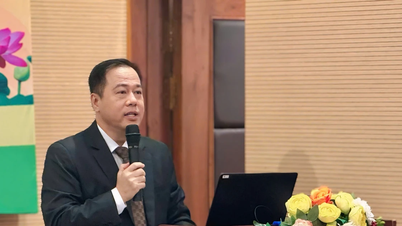


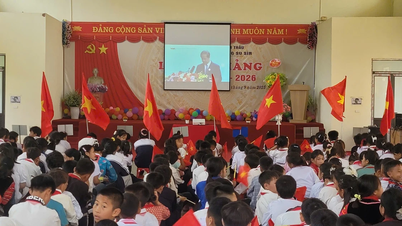

































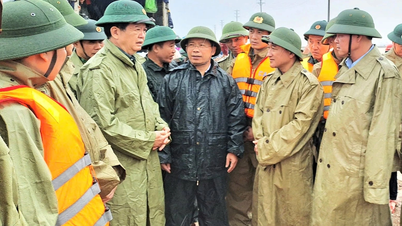

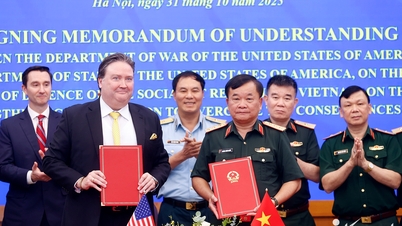







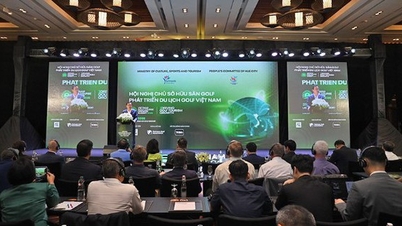

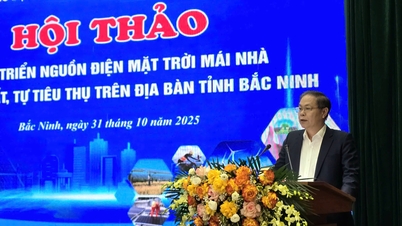
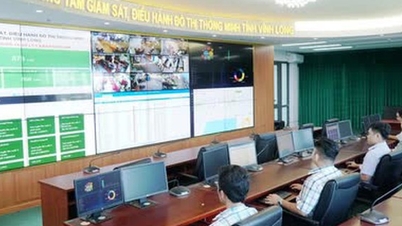

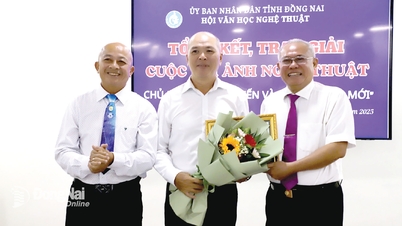

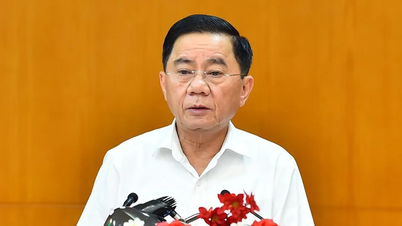
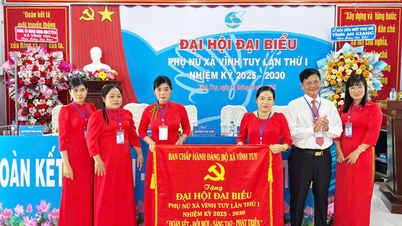





















Comment (0)